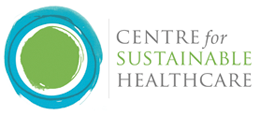- Group home
- You must register/login in order to post into this group.
Eat, Drink, Dress, Move - Therapy Services
By: Southampton University Hospitals NHS Trust
£12,934 (Estimated)
2,563.58 Kg CO2e (Estimated)
Goal: To optimise patients in readiness for leaving hospital and to enable and increase patient engagement with activity. To reduce social, financial and environmental impacts of immobilisation on the frail and elderly.
Background: Inpatients with long stays can develop “pyjama paralysis” and have slower recovery on wards when not drinking, eating, dressing and moving regularly. By encouraging these four simple actions it is possible to speed up recovery, make the hospital stay more pleasant and reduce the resource efficiency of care.
Approach:
1. A band 2 therapy assistant was based on the MOP (medicine for older people) ward each morning to encourage patients to get washed and dressed in their own clothes.
2. Therapy assistant contacted patients and relatives on the unit to request day clothes & shoes be brought into UHS.
3. Data was collected to highlight how many patients were getting dressed and active before and after pilot.
Savings: The cost of the band 2 therapy assistant used in the intervention is £1064 per month. As there was no control group in this pilot, there was no way of verifying how length of stay of patients was affected. However, it is likely that length of stay was lower than it would have otherwise been as a 6 month randomized control trial of the same intervention with 1179 patients at Heart of England NHS Foundation Trust found that patients in the intervention group had a higher likelihood of being in the lowest quartile of length of stay. Making the conservative assumption, based on the best quality evidence of this intervention, that the programme reduced hospital stays by the equivalent of one bed day every week, this makes a saving of £11,452.32 and 1,819.2KgCO2e per year. The best way to verify this would be to run the programme again as a randomized control trial within the context of Southampton Hospital.It is important to note that both the UHS Therapy team and the Heart of England Therapy team have posited that the programme could be run at no cost, integrating it with every day carethrough a training programme and educational materials.Further cost and carbon savings include reduction in gown use from 345 to 125 over a six-week period equating to roughly 1 load of laundry less every two weeks and 314.6KgCO2e saved per year. There will also be cost savings, but laundry costs were not available. Furthermore, patients were no longer being discharged in pyjamas (£8.90) and socks (£2.50). With an average amount of 10 people discharged every month, the savings on new pyjamas and socks for discharge are £1,482 per year and 429.78KgCO2e in procurement, with extra savings if pyjamas are reused. The total estimated savings from the programme as it is currently run are £166.32 and 2563.58KgCO2e per year. However, if the project were to be integrated through training and educational materials, savings could be £12,934.32 and 2563.58KgCO2e. This would of course increase if the intervention was spread across all elderly and respiratory wards.
Medicine for Older People (MOP) Ward, UHS.
To optimise patients in readiness for leaving hospital and to enable and increase patient engagement with activity. To reduce social, financial and environmental impacts of immobilisation on the frail and elderly.
The Centre for Sustainable Healthcare runs the Green Ward Competition as a clinical engagement programme for NHS Trusts wishing to improve their environmental sustainability and reduce their carbon footprint.
